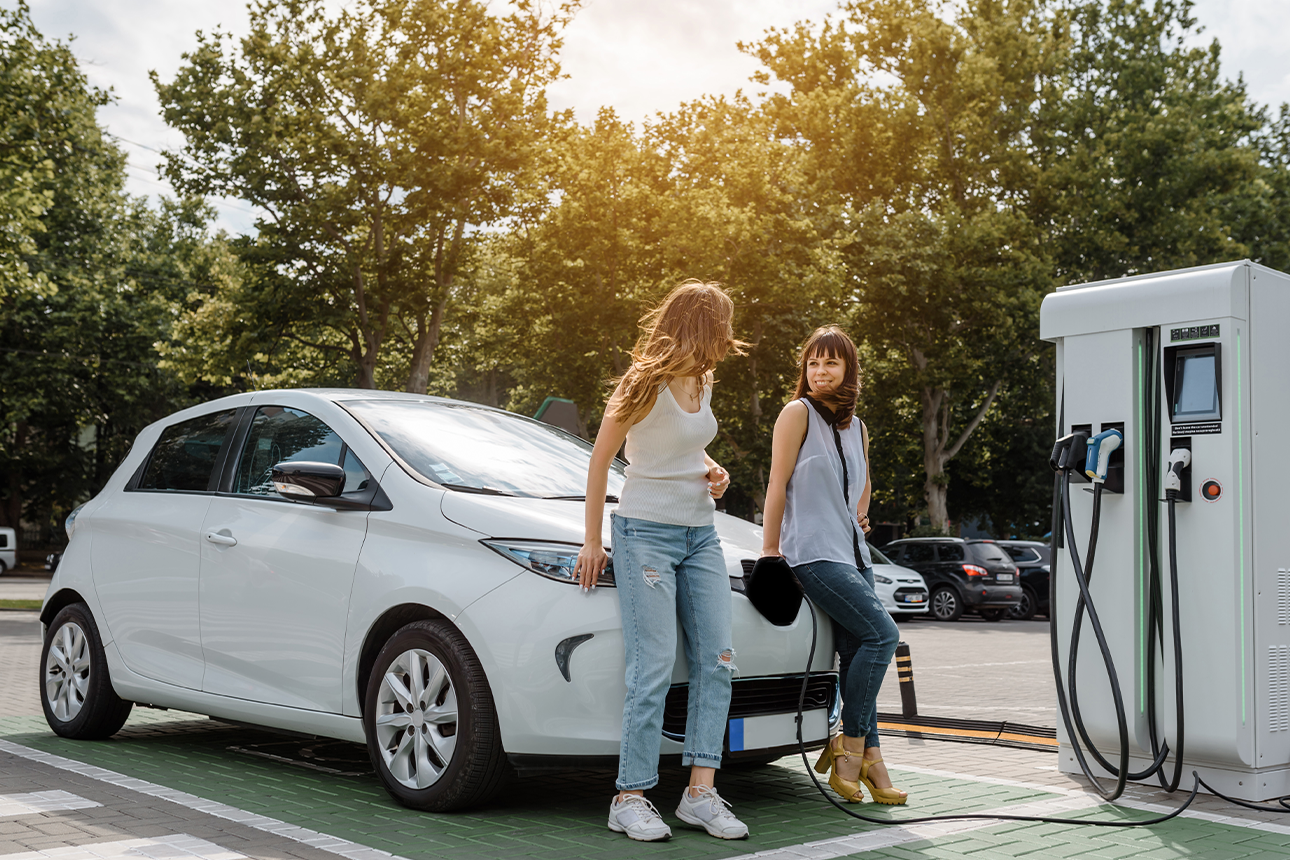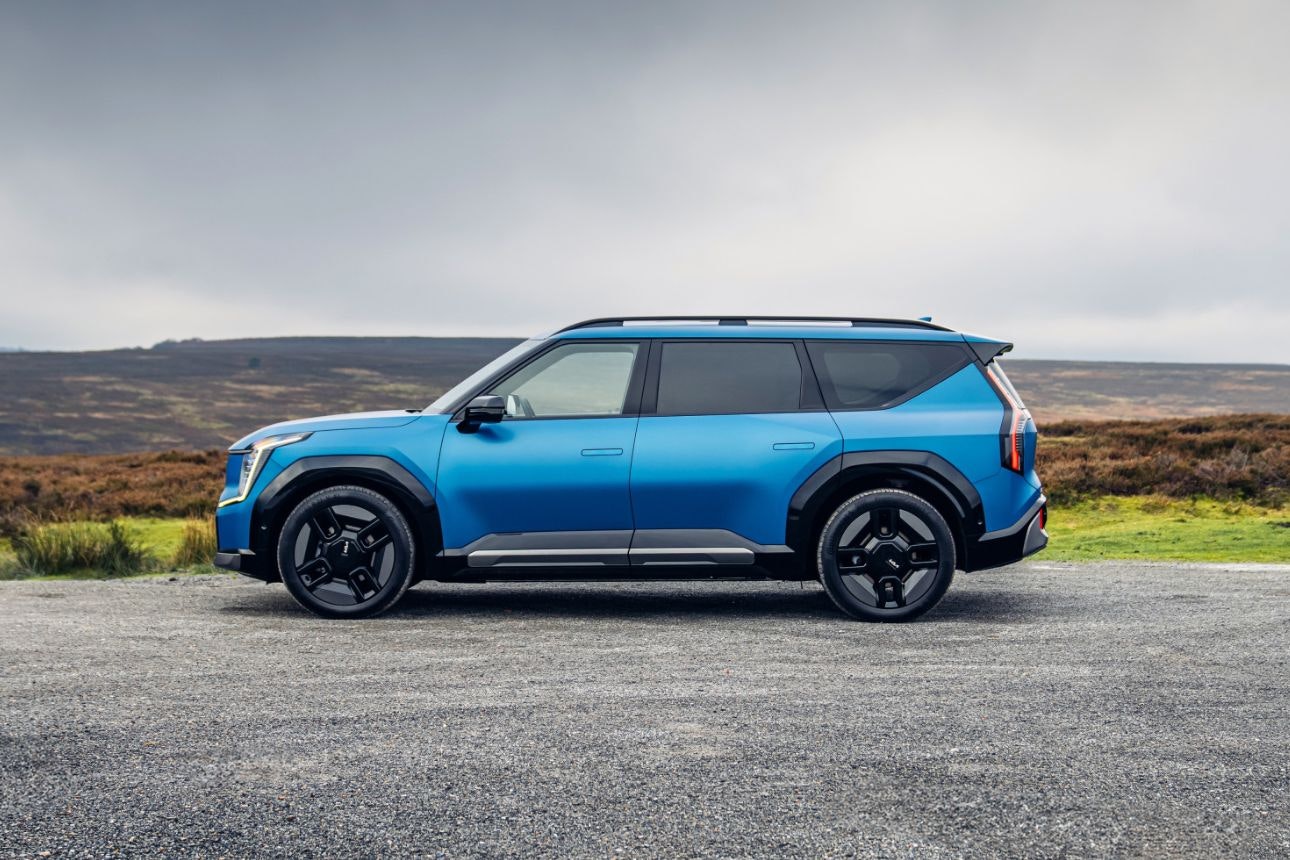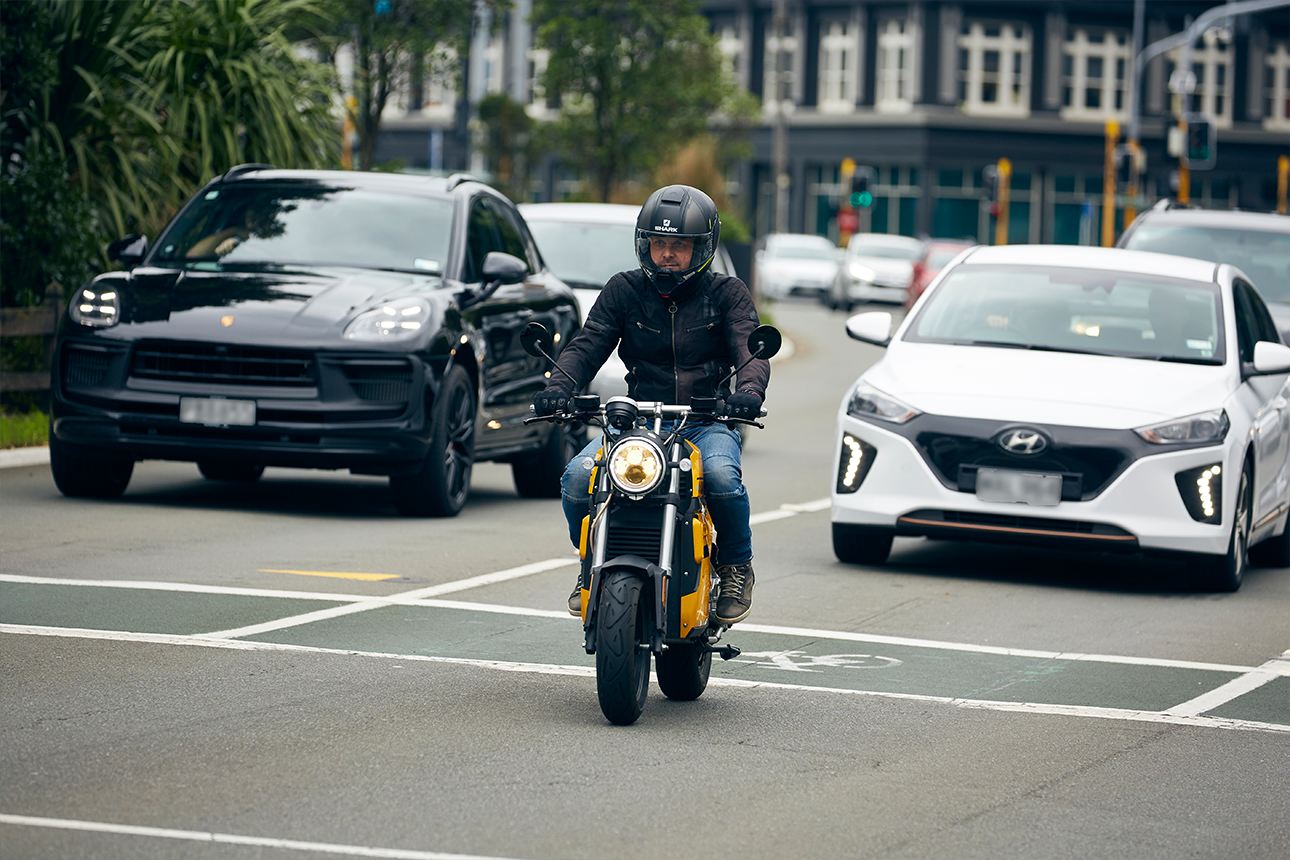
By Paul Fuge
Powerswitch Manager | Pou Whakahaere Powerswitch
Electric vehicles (EVs) are roughly 30-40% cheaper to run compared to petrol equivalents. In fact, charging your EV overnight at home is like buying petrol at around $1.60 per litre.
But to get the best savings, you need to find the right electricity retailer and plan for you – which can seem hard with so many options to choose from. But help is at hand. Like Tarzan swinging on rope vines through the jungle of confusion, here comes the Consumer NZ resident power nerd to guide you.
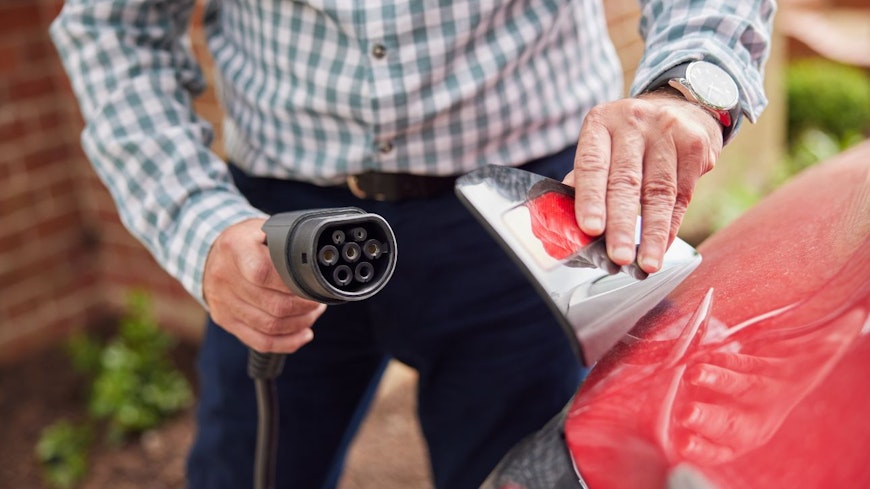
Hi, I’m Paul Fuge and I help run Powerswitch, the free price comparison service from Consumer. I love electricity but, like most consumers, I hate paying more for it than I need to. The rest of the Powerswitch gang and I get a real buzz out of helping consumers save money on their power bills. And a question we increasingly get asked is “What’s the cheapest way to charge my EV?”.
I’m a bit of an old petrol head. In my younger days, my pride and joy was a vintage mint green 1961 Ford XL Falcon. But 3 years ago when I bought “Zippy”, my trusty 2016 Nissan Leaf, I became an EV convert and, like many EV owners, never looked back.
Owning an EV typically sees a household’s electricity consumption increase by around 20–30%. However, I’ve got some easy tips and tricks to save you heaps on the cost of charging your electric beast.
Is running an EV really cheaper?
Yes! In most cases EVs are much cheaper to run than petrol cars. Travelling 100km, including road user charges (RUCs), costs:
$19 for the equivalent petrol car
$19 for an EV charged by a public fast charger
$13 for an EV charged at home on a standard rate
$11 for an EV charged at home on an off-peak (overnight) rate.
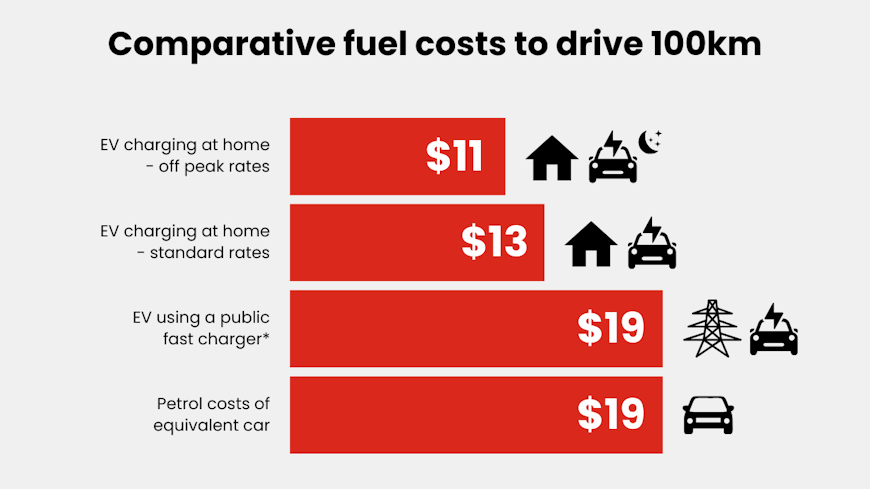
*This assumes a public charger rate of around 70c/kWh. Some power plans provide much lower rates for public charging.
How you charge your EV can make a big difference to the charging cost. It’s 31% cheaper to fuel using electricity rather than petrol if you charge at home using standard power rates. This jumps to 42% cheaper with off-peak rates.
Over a year these savings add up: fuelling with electricity rather than petrol saves around $820 per year. If you use off-peak electricity rates, the savings jump to around $1,100 per year.
And as most EV owners do the majority of their charging at home, the potential savings are massive.
What’s the best type of power plan for EV owners?
Generally, the best plans for EV owners are time-of-use electricity plans. These plans give you different prices for different times of day – or in some cases, shorter periods where electricity use is free. By taking advantage of the lower priced periods offered in time-of-use plans you can typically reduce your EV charging costs by 40%–50%.
The lower cost periods in time-of-use plans align with the times of the day when demand from the electricity system is low (and hence the market price of electricity is low). The lowest cost periods are overnight, which makes these plans well suited to charging EVs as most people are not driving around in the middle of the night.
Buying an EV is a big driver for people reviewing their power provider and plan. Around 70% of EV owners are on already on some form of time-of-use plan, and of these, 96% take advantage off-peak charging.
What if I trickle charge?
Most EV owners (60%) trickle charge using a standard three-pin plug and the portable three-pin cable that comes with the car.
Plans that offer 1-3 hours of free power are not as suitable for trickle charging – which requires longer charging times – but are suitable for people who use wall mounted smart chargers.
If you trickle charge, opt for plans with longer off-peak periods, such as those with cheaper weekend rates or free power at the weekends. These plans work well if you only need to charge your EV once a week, which is often the case for many EV owners.
Although range anxiety can factor into people’s EV habits, the reality is that most people drive short distances. The average distance travelled per vehicle trip is around 20km, averaging around 270km per week. Many EVs have a driving range of 300-400km, meaning most households will find they only need to charge once per week, or do more frequent but smaller top-up charges.
What if I have a smart charger?
It’s worth noting that not all wall mounted chargers are smart – by “smart” we are referring to chargers that can talk to the electricity grid. Around 40% of EV owners have a wall mounted charger, and less than half of those chargers are smart.
Wall mounted smart chargers make it easier for you to take advantage of time-of-use power plans that have low-cost or free periods. You can automatically set your smart charger to only charge your vehicle during times when electricity is cheapest. With most portable standard three-pin plug chargers you need to remember to manually plug in your car at the right time of day, which can be a pain in the arse.
Smart EV chargers can also be at least three times faster than a three-pin plug, which means you can get more charging at no cost with power plans that have free periods.
How do I charge for less when out and about?
Public chargers can be expensive – putting them on a par with petrol costs (unless you’re on a home power plan that offers lower rates for public chargers too). However, households don’t typically use them to power their day-to-day vehicle use, with public chargers mainly being used for long-distance travel.
If you can’t charge at home and are reliant on public chargers, or if you frequently travel long distances away from home, there are power plans available that offer lower rates for selected public chargers.
What if I have solar panels?
Solar power will give you the cheapest rates for EV charging, working out at around 6.5c-12c/kWh. Adding solar with EV is like building your own personal petrol station of your roof.
Which power plan type is likely cheapest for me?
Visit Powerswitch EV page to see options.
You have the power to drive down your charging costs
Choose the right power plan. Visit Powerswitch.org.nz to compare plans and see how much you can save.
Charge during off-peak times, which are typically weekdays between 9pm and 7am and weekends.
Take advantage of time-of-use plans, which can reduce your charging costs by 40%-50%.
If you have a smart charger, the cheapest way to charge your EV is using time-of-use plans that offer a free period.
Smart chargers enable you to automate charging with low-cost periods and future proofs you for future retail offers. See the EECA approved list at eeca.govt.nz/smartchargers.
Installing solar panels can help charge your EV for less.
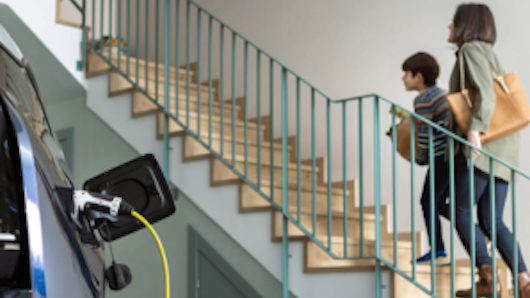
How to make your home energy efficient
We've got you covered with tips on choosing electric appliances, considering an electric vehicle, and even adding solar panels to your home.
